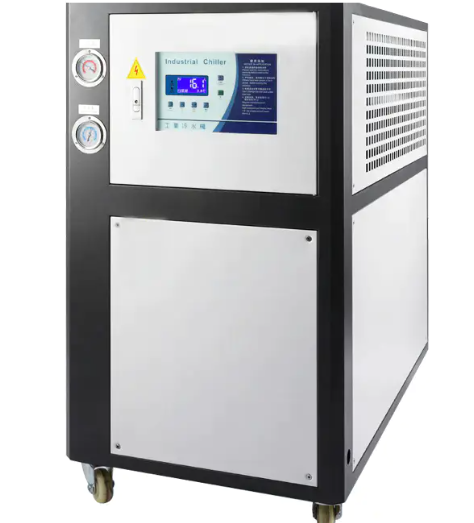Summary:Industrial chillers have become indispensable assets in the manufacturing landscape, wielding a remarkable influence in optimizing output and curtaili
Industrial chillers have become indispensable assets in the manufacturing landscape, wielding a remarkable influence in optimizing output and curtailing costs. Their multifaceted role spans across diverse industries, encompassing food and beverage, pharmaceuticals, chemicals, plastics, electronics, and more. By delving into their operational significance, we uncover the intricate mechanisms through which industrial chillers foster efficiency and economy.
In the heart of their function lies the crucial task of temperature regulation. In the realm of manufacturing processes, where heat is an inescapable byproduct, industrial chillers stand as vigilant sentinels, swiftly extracting excess heat from processes and equipment. This pivotal role in averting overheating ensures that products and machinery remain unscathed, forming the bedrock for both product quality and operational efficiency.
Energy efficiency is a hallmark of modern industrial chillers, hinging on advanced technologies like variable frequency drives (VFDs) and precisely tuned control systems. These components work in tandem to orchestrate an equilibrium between cooling performance and energy conservation, leading to tangible reductions in energy consumption. This, in turn, translates into diminished operational costs, a pivotal consideration for any manufacturing endeavor aiming to bolster financial prudence.
However, the impact of industrial chillers extends beyond mere fiscal considerations. They act as bulwarks against downtime—an ever-looming threat that can disrupt productivity. By preemptively preventing equipment overheating, industrial chillers mitigate the risk of breakdowns and ensuing operational halts. This results in sustained production levels and a notable enhancement in overall equipment effectiveness (OEE).
Industrial chillers also play a pivotal role in navigating the complex landscape of environmental regulations. Processes subject to stringent temperature mandates, as prescribed by regulatory bodies, find a reliable ally in these cooling systems. Complying with these regulations not only prevents potential legal entanglements and fines but also nurtures a reputation of responsible stewardship within the industry.
An additional facet of industrial chillers is their capacity for waste heat recovery, effectively turning waste into a valuable resource. Those equipped with heat recovery mechanisms are adept at salvaging and repurposing waste heat, a byproduct of the cooling process. This reclaimed thermal energy can be harnessed for auxiliary processes, space heating, or even transformed into electrical power, accentuating energy efficiency and sustainability.
Flexibility emerges as another defining attribute of industrial chillers, allowing them to seamlessly integrate into a range of manufacturing contexts. This adaptability equips manufacturers with a versatile tool, poised to align with evolving production demands. This adaptability fosters operational agility, enabling manufacturers to allocate resources strategically and respond swiftly to market fluctuations.
Industrial chillers also present a shift from fragmented cooling approaches toward centralized cooling solutions. This consolidation leads to streamlined maintenance procedures, a reduction in required components, and an enhanced level of systemic cohesion. The culmination of these efficiencies translates into tangible reductions in both capital investment and ongoing operational expenses.
Serving as guardians of optimal operating temperatures, industrial chillers extend the lifespan of machinery and equipment. By mitigating wear and tear, they offer the prospect of prolonged equipment viability, reducing the need for frequent replacements and the accompanying financial burden.














